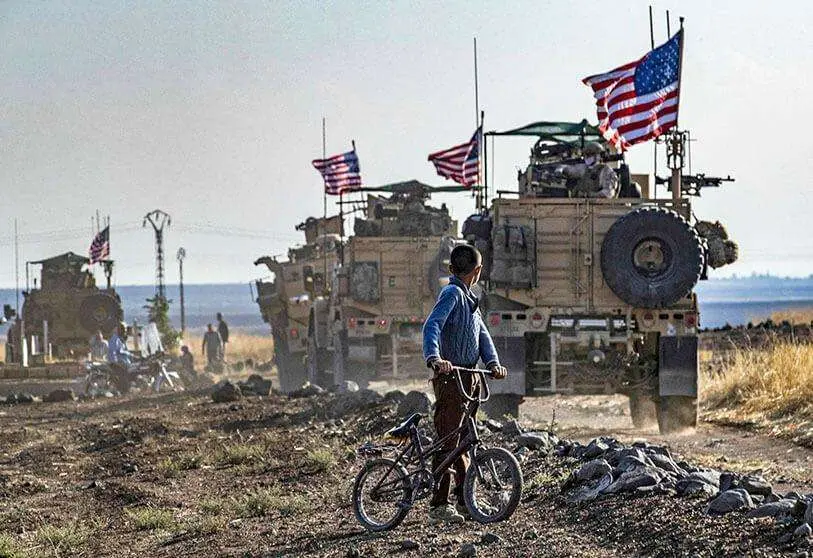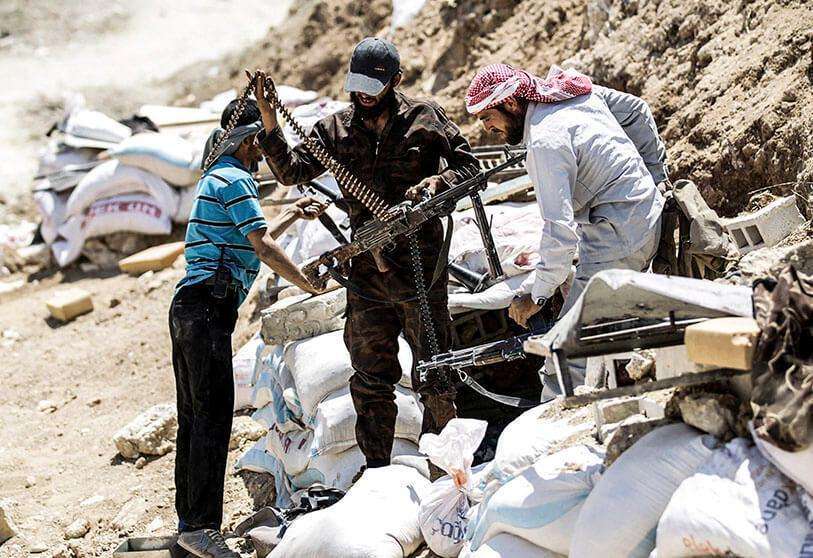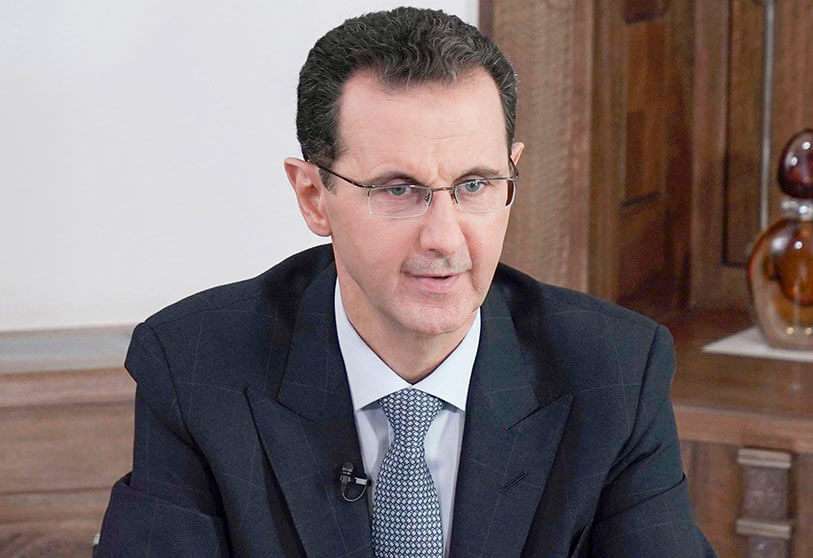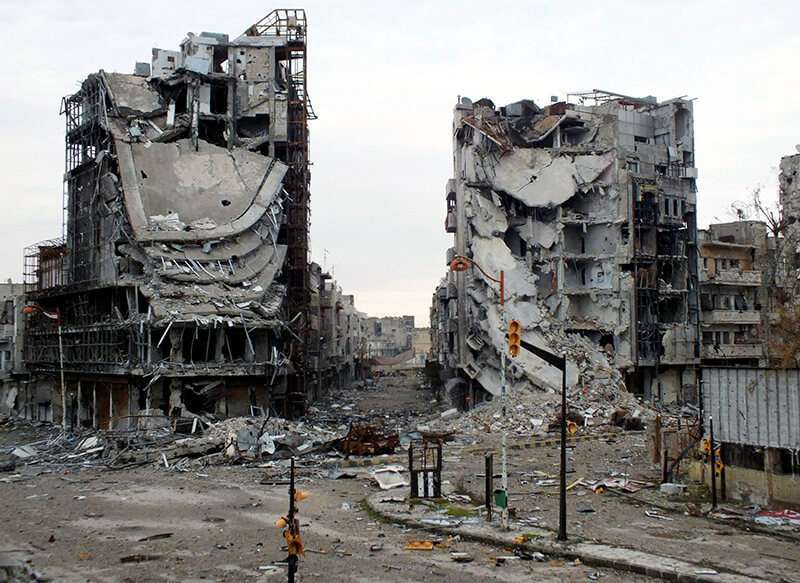US eliminates a jihadist leader in Syria, the second in less than a month

The US military has carried out a new attack on a leader of the jihadist group Hurras Al-Din, an affiliate of the terrorist group Al-Qaeda, in the Syrian province of Idlib.
The attack, which reportedly killed the jihadist, was reportedly carried out through "kinetic bombing" from a drone. According to a US Central Command statement, the jihadist leader, Abu Hamzah al-Yemeni, was "travelling alone on a motorbike at the time of the attack". They also state that in an initial review of the offensive "there were no civilian casualties".
According to US Central Command, CETCOM, "the removal of this senior leader will disrupt al-Qaida's ability to carry out attacks against US citizens, our partners and innocent civilians around the world".

The strike was the second US operation in Syria against jihadist leaders in less than a month. The last one was carried out on 16 June against a Daesh leader during a raid in Aleppo province. Similarly, in Idlib, the US military managed to kill another leader of the jihadist organisation, the terrorist Bu Ibrahim Al-Hashimi Al-Qurashi, on 3 February.
Idlib is one of the only rebel strongholds in Syria that has managed to resist the government of Bashar al-Assad. Today a Kurdish-Arab coalition continues to face offensives from the Damascus government as well as from Russia and Turkey. However, the province is also home to jihadist groups such as Al-Nusra, as well as Daesh leaders who continue to pose a major threat to the safety of the 3 million civilians residing there, in addition to the attacks they continue to face from Al-Assad and his allies.
This makes Idlib a tangle of internal and external conflict. Of the 3 million people living in Idlib, it is estimated that a significant percentage of them live in the region as refugees due to internal displacement that was executed as a result of the Syrian civil war. NGOs also claim that more than 1,500 civilians have been killed since the start of the offensives in Idlib.

The history of this enclave has been - and continues to be - significantly important during the development of the Syrian conflict. Idlib is a province located in the northwest of Syria bordering Turkey. Its strategic position has attracted the interest of several international powers. Not only because of its border with Turkey, but also because Idlib is the departure point for important roads that connect with significant Syrian enclaves such as Aleppo, Damascus and Latakia. Latakia has the peculiarity of being a coastal city that is also home to the Moscow-controlled Hmeimin military base.
It is here that the Syrian opposition has managed to establish itself as the last bastion of dissidence against Bashar al-Assad. Retaking Idlib would mean that the Syrian president would have regained full control of the country. However, this stronghold is not only inhabited by rebel resistance forces, but also by various jihadist groups that managed to reach the area after the towns they had occupied were liberated by US-backed Kurdish-Arab forces, the Civil Protection Units (YPG) and the Women's Protection Units (YPJ). This makes Idlib a 'hotbed' where insecurity is the order of the day.

For this reason, a peaceful solution to the Syrian conflict was sought during talks in Astana, the capital of Kazakhstan. During these meetings representatives of the Syrian regime managed to meet with several representatives of rebel groups, as well as leaders of other countries and organisations such as the United Nations.
In these meetings Idlib was declared a 'de-escalation' zone, which means a zone free of attacks and clashes. For this reason, both civilians and members of rebel groups moved to the area.
From that first moment, some 10,000 citizens arrived in Idlib at a time when Turkey was their only 'lifeline' out of Syria. However, Turkish President Recep Tayyip Erdogan did not accept any more refugees, leading to massive internal displacement.

In March 2020, a meeting between the Russian and Turkish delegations in Moscow led to a ceasefire in Idlib. In this agreement they concluded that the Syrian conflict would never be "resolved by arms". Despite this achievement, Russia and Turkey continued to send in military personnel under the pretext of stamping out jihadism in the area, as did the US.
However, in September last year, Bashar al-Assad's Syrian National Army shelled rebel positions in Idlib, breaking a ceasefire that seriously concerned the UN. According to an official report, the shelling killed four people and wounded at least 15.
Al-Asad also attacked several areas near the border with Turkey in the villages of Fattire, Binin and Shinan in the Jabal Zawiya region, violating a truce reached in 2017 between Turkey, Russia and Iran. In it, the beginning of a military de-escalation was agreed.

In addition, that same August, Russian aircraft intensified their bombing raids in the Kurdish canton of Afrin, located in Syrian territory and occupied by Turkish forces since 2019. In fact, in this area of Syrian Kurdistan, Turkey has not stopped launching offensives against the Kurdish population. The latest was carried out this June with the aim of "eliminating terrorists from Tal Rifaat and Manjib", towns located near Afrin.
Both the breakdown of the ceasefire by Damascus and Moscow and the new Turkish offensives mean that the province is once again plagued by violence and insecurity. All this comes at a time when the lives of millions of people living in Idlib depend almost directly on the Bab al Hawa corridor.
The continuity of this corridor, through which humanitarian aid can be sent, now depends on what the members of the Security Council decide on 10 July. For the moment, Russia and China, permanent members of the Council, have already expressed their rejection of a possible extension. In fact, Moscow caused the closure of all Syrian humanitarian corridors, with the exception of the Bab al Hawa corridor, so it is possible that the latter will be definitively closed.
If this happens, civilians in Idlib will see their living conditions worsen, already deteriorated by the social and economic crisis resulting from a war that has not yet ended.
Americas Coordinator: José Antonio Sierra.








